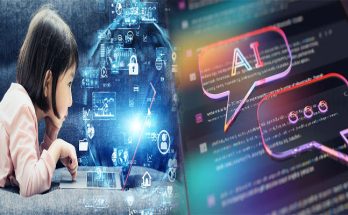As the world rapidly evolves due to technological advancements, the education landscape must adapt to meet the needs of future generations. Future skills development is becoming increasingly important as traditional skills are being replaced with new, more advanced skills. The evolving education landscape is shifting towards developing skills that will be in demand in the future. In this article, we will explore the importance of future skills development and how the education landscape is evolving to cater to the needs of tomorrow’s workforce.
Importance of Future Skills Development
In the past, formal education was primarily focused on developing academic skills such as reading, writing, and mathematics. However, in today’s rapidly changing world, future skills development is becoming increasingly important. The pace of technological advancement is transforming workforces, and technological skills are becoming a necessity in almost every field.
Future skills development is essential in preparing students for the future economy. Skills such as critical thinking, problem-solving, creativity, adaptability, and collaboration are becoming mandatory for students to succeed in the future workforce. In addition to technological knowledge, these skills will make students more employable and increase their chances of success in their chosen fields.
Evolving Education Landscape
The education landscape is experiencing a shift from traditional knowledge-based learning to experiential, skills-based learning. The traditional classroom is no longer enough to prepare students for the future workforce. Schools and universities are now focusing on developing future skills through practical, hands-on learning experiences.
Several innovative learning models are emerging in the education landscape. For example, blended learning combines face-to-face teaching with digital learning, allowing students to learn at their own pace while still providing valuable interaction with teachers and peers. Experiential learning, or learning by doing, is becoming increasingly popular, with more schools and universities incorporating internships, apprenticeships, and work-based learning opportunities into their curricula.
Moreover, online education is becoming increasingly popular, providing students with access to quality education, regardless of their location. Online courses and micro-credentials provide learners with the flexibility to take courses and develop new skills at their own pace. Online learning is particularly advantageous for those who are unable to attend traditional schools or universities due to location or other limitations.
Future Skills Development Initiatives
Several initiatives aimed at future skills development are emerging in the education landscape. For example, coding and computer science education are becoming increasingly popular, with many schools and universities offering courses in coding and programming languages. Additionally, many employers are partnering with schools and universities to provide students with internships and apprenticeships, giving them real-world experience and on-the-job training.
Another future skills development initiative is collaboration between schools, universities, and employers to create tailored educational programs. This allows students to develop skills that are directly relevant to employment in a particular field.
Finally, micro-credentials, or small, digital certificates, are becoming increasingly important in validating specific skills. This allows individuals to accumulate and demonstrate their skills over time, rather than having to complete a full degree or certification program.
Future skills development is becoming increasingly important as traditional skills are replaced with new, more advanced skills. The evolving education landscape is shifting towards developing the skills needed for tomorrow’s workforce. As the world continues to evolve rapidly, it is important for students to be equipped with the skills necessary to succeed. Innovative learning models, future skills development initiatives, and online education are just a few examples of how the education landscape is evolving to meet the needs of future generations.





